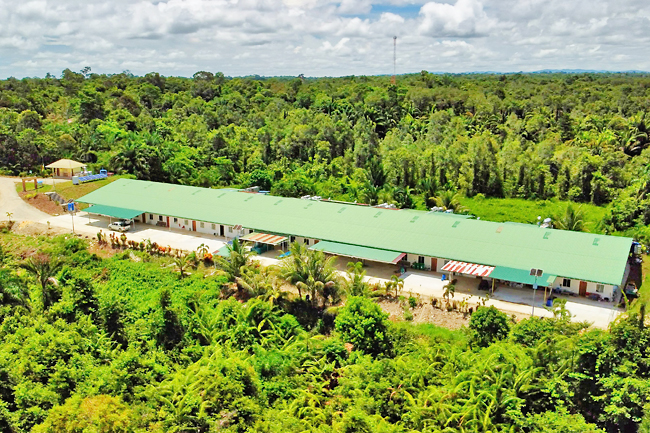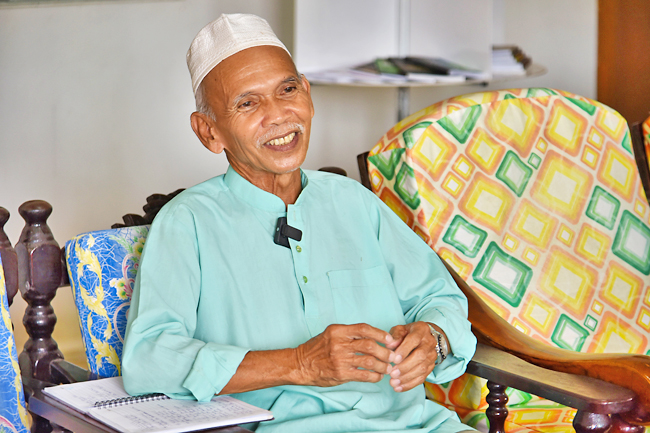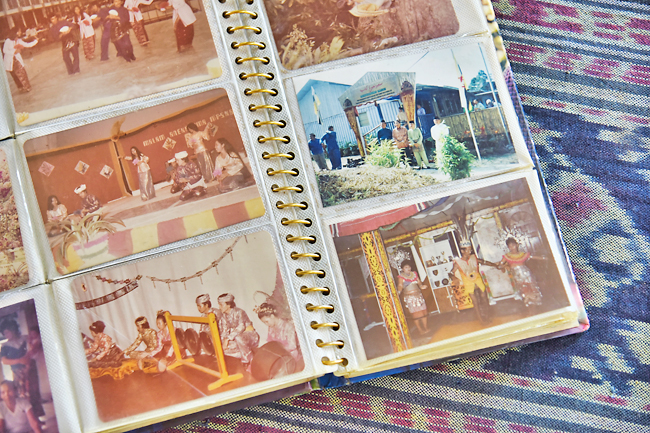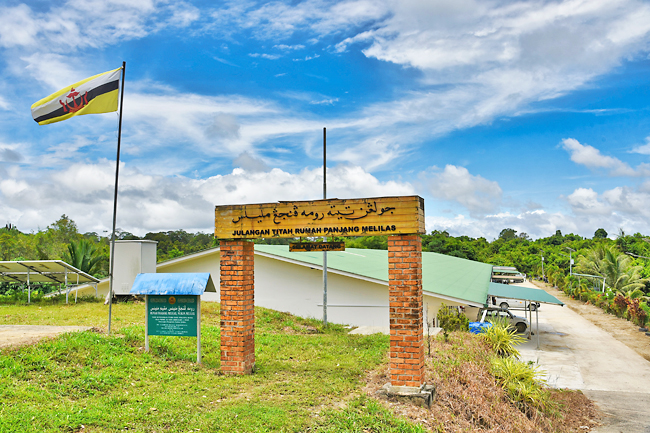As Brunei strides forward into a future of progress and modernity, it does so with a deep-rooted belief that no one should be left behind.
This sentiment resonates across the nation, from bustling urban centres to the serene villages nestled in the rural heartlands. Every individual, including tribesmen, deserves to walk on Brunei’s soil with dignity, embraced by the comforts and opportunities of contemporary life.
This commitment to inclusivity echoes in the efforts to preserve traditions and heritage, such as the longhouses that stand as testaments to resilience and honour.
These longhouses, with their rustic charm and historical significance, symbolise a way of life that embraces both the past and the future. They serve as living reminders that progress should not come at the cost of erasing the rich cultural tapestry that defines us.
In the journey towards modernity, the Julangan Titah Longhouse, situated within Mukim Melilas in the interior and southernmost point of the Belait district, stands as a symbol of the coexistence of tradition and modernity. Spanning 602.803 square kilometres along the borders with Malaysia, the Julangan Titah Longhouse is one of the most remote longhouses in the nation and serves as a bridge between the rural and urban, connecting the past with the present.
A journey to the longhouse can take hours, whether one travels by rough roads or the meandering Belait River.




I had the opportunity to meet with one of the residents, Haji Mohd Yassin bin Abdul Rahim Sap, to learn more about the history and development of the longhouse.
One surprising fact he shared was the origin of the name Mukim Melilas, derived from the Iban word mengilas, which referred to a hardwood abundant in the area, suitable for making firewood for cooking.
From its origin, the word gradually spread and underwent evolution and change over time in pronunciation and spelling, eventually resulting in the current name, Melilas.
A majority of its members have embraced Islam, with the first instances of Islamic adoption among the longhouse residents occurring on June 28, 1992.
Haji Mohd Yassin, along with 32 other residents, were welcomed into the faith in a ceremony at the site of the old longhouse.
The old longhouse, he explained, was demolished to make way for the current, modern, and sleek longhouse, which was a kurnia peribadi (personal gift) from His Majesty Sultan Haji Hassanal Bolkiah Mu’izzaddin Waddaulah ibni Al-Marhum Sultan Haji Omar ‘Ali Saifuddien Sa’adul Khairi Waddien, Sultan and Yang Di-Pertuan of Brunei Darussalam.
Dubbed the Julangan Titah Melilas Longhouse, the new accommodations feature 15 doors, with each door housing a family.
These residences are fully equipped with modern comforts that many take for granted, such as electricity from diesel generators and water pumps and tanks, providing a comfortable living environment for residents in the nation’s most remote longhouse.
The longhouse’s construction took around eight months, starting in December 2015. Replicas of the house keys were handed to the families on June 20, 2016. The project had an estimated cost of BND2 million.
In addition to constructing the Julangan Titah Melilas Longhouse, other amenities and facilities were also completed to benefit the residents, including paved roads and the Melilas Primary School. A significant recent development in the area was the completion of broadband and mobile telecommunications services in April 2024.
The completion was officiated during a goodwill visit by the Ministry of Development, the Ministry of Transport and Infocommunications, and the Ministry of Culture, Youth and Sports.
Their visit highlighted how six rural areas of Belait District – Kampong Bang Taong, Kampong Kukub, Kampong Buau, Kampong Biadong Ulu, Kampong Melilas, and Kampong Sukang – are now connected with the rest of the nation by Unified National Networks (UNN) Sdn Bhd in collaboration with the Authority for Info-communications Technology Industry of Brunei Darussalam (AITI). This initiative is part of the nation’s efforts to provide connectivity and communication to areas lacking mobile and fixed services, bridge the digital divide in rural regions, and empower communities by providing access to essential services.
The base stations powering these services operate solely on solar energy, aligning with sustainable practices and addressing the challenge of the absence of commercial power in rural areas. Furthermore, the developments made to Julangan Titah Melilas Longhouse and the surrounding remote area of Belait District are in line with the nation’s vision of improving the standard of living and sustainability for residents.
Through a national approach, efforts focused on initiatives such as road preparation, clean water supply, and electricity installation have also made a significant impact on the daily lives of residents, particularly those in Ulu Belait. Ultimately Brunei’s journey toward progress and modernity is characterised by a harmonious blend of tradition and innovation and the preservation of longhouses like Julangan Titah Melilas Longhouse exemplifies this balanced development.
By embracing modern comforts while honouring cultural heritage, Brunei ensures that its growth is inclusive, dignified, and respectful of the rich cultural tapestry that defines the nation. This commitment to balance development fosters a future where progress and tradition coexist, enriching the lives of all who call Brunei home. – Daniel Lim


